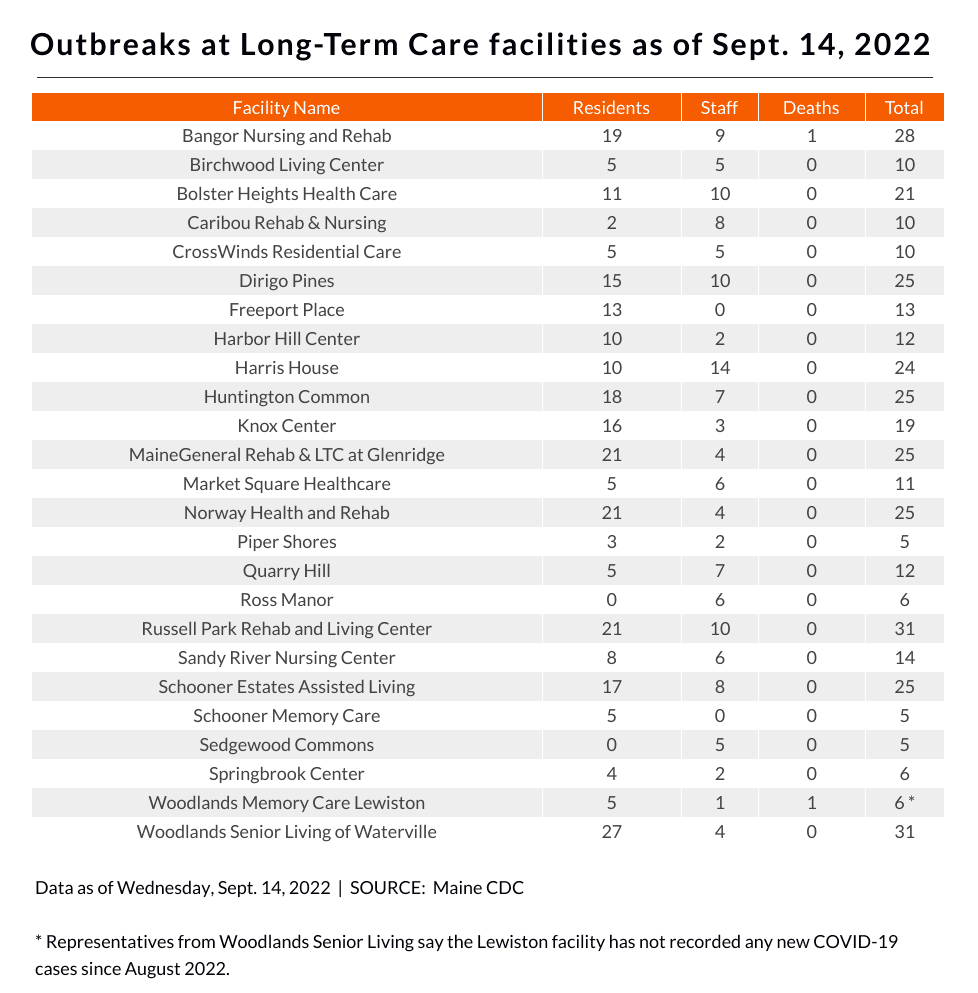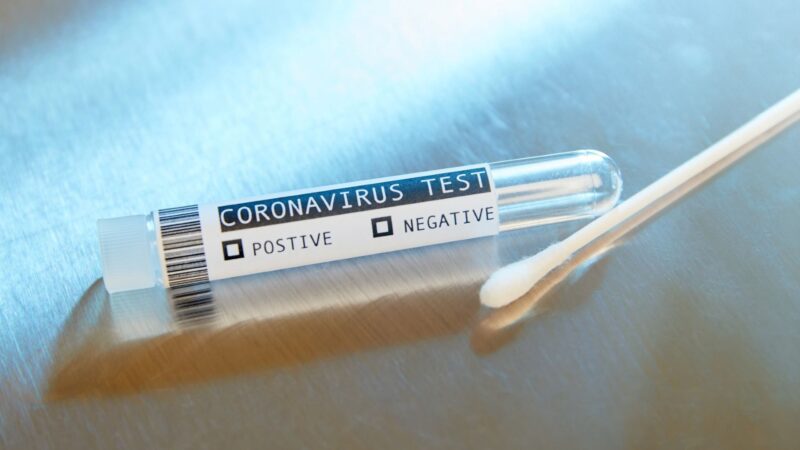Two residents at Maine long-term care homes have died in recent COVID-19 outbreaks, and the state has open investigations at 25 facilities around the state, according to the Maine Center for Disease Control and Prevention.
Health officials and operators of the long term care homes said the recent outbreaks are less widespread than the illness and death that occurred during the peak of the pandemic, however.
One of the deaths was at Bangor Nursing and Rehab, where 28 people have tested positive during the recent outbreak. The other death was at Woodlands Memory Care of Lewiston, which recorded six cases during its outbreak.
Two Woodlands facilities — in Lewiston and in Waterville — had recent outbreaks. Woodlands Senior Living is a Maine-based company with assisted living and memory care facilities in nine locations across the state, with one more opening soon in Bridgton.
However, cases are now on the “downswing,” Matthew Walters, who is one of the Woodlands owners, told The Maine Monitor.
Over the course of the outbreak in Waterville, 31 people have tested positive. As of Friday, Walters said there was only one remaining active case: a resident who tested positive on Sept. 12.
Outbreaks are defined as five cases within 14 days, according to the Maine CDC. The investigation remains open until a facility goes two weeks without a new case. That means the Waterville investigation will remain open until Sept. 26, unless there is a new case.
In addition, representatives from Woodlands Senior Living say the Lewiston facility had not recorded any new COVID-19 cases since August.
Long-term care facilities have experienced COVID-19 outbreaks pretty consistently throughout the pandemic, Walters said, but they have ebbed and flowed as cases have peaked and eased throughout the larger community.
More recently, outbreaks haven’t sparked the same level or panic and anxiety that they did in the first two years of the pandemic, he said. This is because staff have more experience responding to new cases, medications have gotten better at treating symptoms and the vaccines have reduced the impact.
“It’s a significantly more advanced response than it was two years ago,” Walters said. “I think that’s why outbreaks are smaller, less severe and the outcomes are better. But that doesn’t mean there are any less instances. They are still cropping up.”
As of Friday, Bangor Nursing and Rehabilitation Center had four residents who tested positive, said Melissa Martin, who is president of the facility.
“Our top priority is ensuring the safety of our residents and staff,” Martin said. “Therefore, we continue to implement strict infection control protocols as well as surveillance testing.”
New COVID-19 variants are more contagious than early iterations so outbreaks aren’t necessarily due to looser protocols, said Angela Westhoff, president and CEO of the Maine Health Care Association, which represents about 200 Maine nursing homes and assisted living facilities. She reiterated that vaccines and treatments make COVID-19 less of a threat.
“Social distancing is not really an option in long-term care, where caregivers have to help residents with intimate, everyday activities,” Westhoff said. “We remain committed to following state and federal infection control guidelines, including wearing (personal protective equipment), testing, and quarantining.”
As of Friday, Maine has recorded 286,333 COVID-19 cases, although that number is collected by the Maine CDC and does not include home tests that aren’t sent to a lab.
To date, 2,564 Mainers have died due to COVID-19.
Last month, the U.S. Food and Drug Administration authorized two updated booster vaccines from Pfizer and Moderna. These updated shots are intended to target variants that are more transmissible.
“Because vaccines have significantly lowered risk of hospitalization and death with COVID, outbreak investigations now primarily help ensure appropriate infection control and testing at congregate living settings, such as long-term care facilities,” said Robert Long, spokesman for the Maine CDC. We continue to work with partners to help long-term care facilities ensure that residents and staff have quick and easy access to the new bivalent boosters.”
In Maine, booster shots are available at pharmacies, doctors offices and vaccine sites.
About 81% of Mainers are fully vaccinated and about 59% of Mainers have received their first booster.
The vaccination rate is higher among older Mainers. About 95% of Mainers 65 and older are fully vaccinated.
“None of these outbreaks poses an elevated public risk, and we can all help limit risk for vulnerable neighbors, including those who live in long-term care facilities, by being up to date on COVID vaccines, including the new boosters authorized on Aug. 31,” Long said.

Rose Lundy covers healthcare for The Maine Monitor. Reach her by email with other story ideas: rose@themainemonitor.org.





